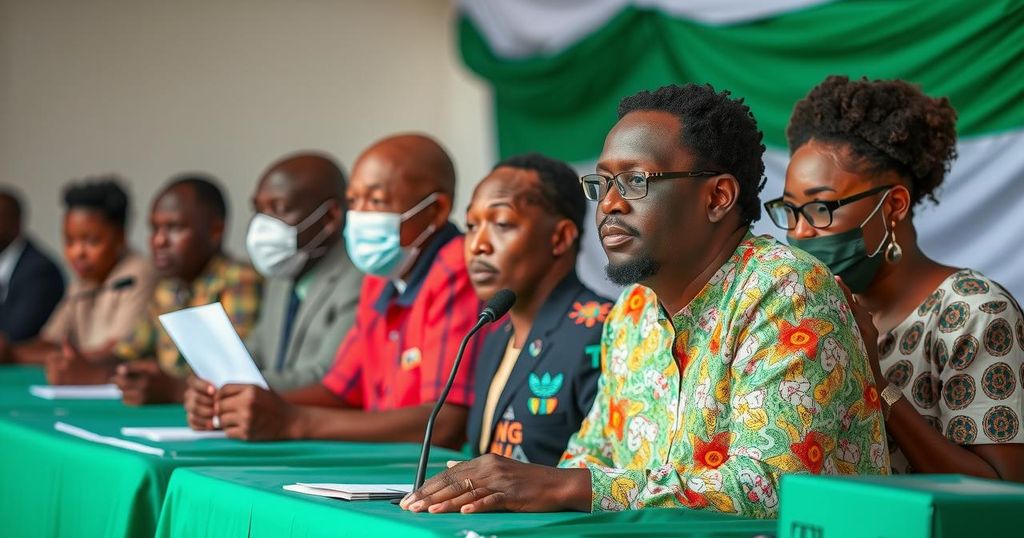World news
2024 ELECTIONS, AFRICA, AFRICA CENTER FOR STRATEGIC STUDIES, AHMED ABDALLAH SAMBI, AP, ASSOUMANI, AZALI ASSOUMANI, COMOROS, CONVENTION FOR THE RENEWAL OF THE COMOROS, ELECTIONS, EUROPE, FRANCE, GOVERNANCE, GOVERNMENT, GRANDE COMORE, JUWA PARTY, MORONI, NATIONAL ASSEMBLY, NATIONAL ELECTORAL COMMISSION, U. S. CONGRESS, VOTER TURNOUT
Sofia Rodriguez
0 Comments
Comoros Conducts Parliamentary Election Amid Opposition Boycotts
Comoros held a parliamentary election on Sunday, boycotted by some opposition parties citing authoritarianism under President Assoumani. The election will determine 33 legislative seats, with results expected next week. The opposition anticipates low voter turnout due to disaffection with the political process and previous election concerns.
Comoros conducted a parliamentary election on Sunday amid opposition boycotts from several political factions. The boycott stems from accusations against President Azali Assoumani and his ruling party regarding an increasingly authoritarian approach towards governance and concerns about electoral integrity. The election is set to fill the 33 seats in the legislature, with results expected to be announced next week by the national electoral commission.
Approximately 330,000 citizens are registered to vote in Comoros, which has a total population of around 850,000. Nonetheless, opposition leaders predict low voter turnout due to widespread disillusionment with the democratic process. The governing party, Assoumani’s Convention for the Renewal of the Comoros, previously secured 20 out of 24 contested seats in the 2020 parliamentary elections, which the opposition labeled as a “masquerade” due to claims of unfair practices.
Comoros, a small archipelago located near Madagascar in the Indian Ocean, has a tumultuous political history marked by military coups since it gained independence from France in 1975. President Azali Assoumani, a former military officer who first took power in 1999, has faced allegations of political repression and corruption throughout his tenure. Following constitutional changes in 2018, he extended his presidency beyond previously established term limits, contributing to the current political climate of distrust and discontent among various political factions. The opposition has consistently raised concerns about the fairness of recent elections, including the controversial 2020 parliamentary and 2021 presidential elections.
The parliamentary election held in Comoros highlights significant political tensions, characterized by opposition boycotts and accusations of electoral malpractice against the ruling party. With a history of political unrest and allegations of authoritarianism under President Assoumani, the democratic process in Comoros remains under scrutiny. The low turnout anticipated as a result of widespread disenchantment signals a challenging future for political stability and public trust in electoral systems.
Original Source: abcnews.go.com




Post Comment